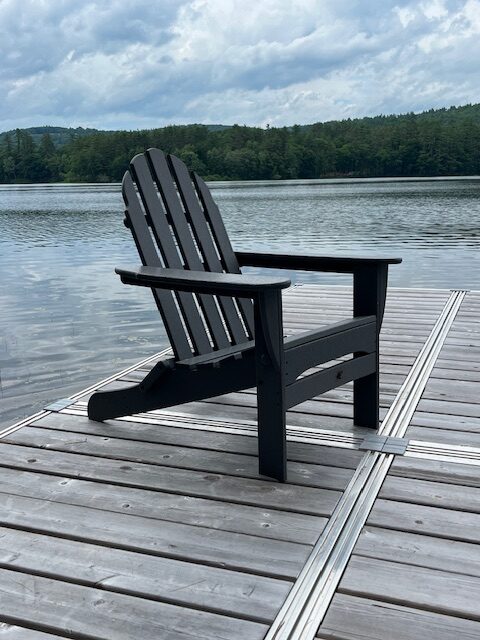A Space Apart
One of my favorite poems is “The Lake Isle of Innisfree,” by William Butler Yeats
I will arise and go now, and go to Innisfree,
And a small cabin build there, of clay and wattles made;
Nine bean-rows will I have there, a hive for the honey-bee,
And live alone in the bee-loud glade.
And I shall have some peace there, for peace comes dropping slow,
Dropping from the veils of the morning to where the cricket sings;
There midnight’s all a glimmer, and noon a purple glow,
And evening full of the linnet’s wings.
I will arise and go now, for always night and day
I hear lake water lapping with low sounds by the shore;
While I stand on the roadway, or on the pavements grey,
I hear it in the deep heart’s core.
I thought of it often during a recent, rare, two-week stay in the country, where the quiet was punctuated only by morning birdsong and late afternoon loon calls across an unspoiled lake.
My sojourn into relative solitude and quiet brought me to a deeper sense of peace than I’ve known in years. Just taking the time to weed a garden in need of attention, or sit by a window following a caterpillar inch up a gossamer strand of its own silk (a miraculous sight) stilled my racing thoughts, my instinct to plan (and fill) every waking hour, to solve every interpersonal challenge in my current life.
Inner peace and perspective don’t show up by a sheer act of will. For the first five days of my retreat, I was up to my usual bad habits – checking my phone, piling up small and relatively insignificant accomplishments.
I was still in the “more is more” mindset.
When I work with people in spiritual direction, I often see them dashing through a mountain of activities, or holding onto familiar behaviors, unable to see that holding fast to what isn’t working is a form of self-imposed spiritual coercion. Beneath the busyness is a fear that without juggling so much, without distractions and overwhelming obligations, life will collapse into a void. And so we unconsciously water the roots of compulsive activity, even when on a conscious level we celebrate the value of life, friendship, creativity. I found that I, too, had been running too hard and too fast.
So, if willpower doesn’t work, what does?
Yeats’ wisdom offers itself here. Peace did come to me in the country — it came “dripping slow” as the poem describes it. It arrived as I slowed down enough to pay close attention to the glorious sights and sounds of summer at its peak. It came dripping from the quiet breezes at the end of the day. From time spent reading, writing in my journal, drafting poems. Time spent doing nothing at all.
Time slowed, as I adapted to the slower pace of the natural world. The wells of creativity that I hadn’t even realized were blocked by all of my busyness, began to flow in new directions, which I will share in subsequent posts. But it is one thing to read a poem or a blog about slowing down. It is another to experience it. And so, I invite you to take a few deep breaths, and give this prompt a 10 minute try.
A Journal Prompt
For now, while summer lingers and Labor Day weeks away, pull out your journal and imagine how your life can be “less” frantic, less hurried, less FULL. How many secondary agendas can you let go of? If you had one hour a day to truly focus on what matters most to you – without interruption – what would it be?
Happy August and happy journaling!!
Kathleen





Barbara McEvoy
August 13, 2024at9:39 pmSecondary agendas! Indeed, that that could be the limit ! May the peace of quiet help us live with fewer, more authentic agendas that speak to our quiet self! I
Kathleen Hirsch
October 2, 2024at6:29 amAmen, Barbara!!!! Nice to see you here!